Jeannette Rankin, first woman elected to Congress, among Montana’s influential Women of the Century
A few years before women across the country got the right to vote, the foundation of the 19th Amendment was being laid in Montana.
Jeannette Rankin helped secure the right to vote for Montanan women in 1914, and used that political momentum to fuel her campaign to become the first woman elected to Congress. Two years later, she did just that.
This year, to commemorate the 100th anniversary of the 19th Amendment, which gave women the right to vote, the USA TODAY Network is naming 10 women from all 50 states, plus D.C., as its “Women of the Century.”
These women have made significant contributions to their communities, states and country, with documented achievements in areas such as arts and literature, business, civil rights, education, entertainment, law, media, nonprofits and philanthropy, politics, science and medicine, and sports. To make the list, they also had to have had U.S. citizenship and have lived between 1920 and 2020.
When narrowing the list, some names immediately came to mind for the panel, such as Rankin; Alma Smith Jacobs, Montana's first African-American state librarian; and Elouise Cobell, who took on the government and won a $3.4 billion settlement for Native Americans.
But the panel also wanted to elevate the profiles of women in Montana's history who are recognized less often, particularly leaders of some of the Native American nations within the state. They looked for women who didn't just feel like icons who had accomplished near-impossible tasks, but other hard-working, brave women who felt like peers whose achievements all of us could strive toward.
Are you registered to vote? Take the first step to making sure your vote counts.
Trimming the list wasn't easy, and it meant trailblazers like Judy Martz, the first and only woman to serve as governor of Montana, and Emma Ingalls and Maggie Smith Hathaway, the first women to serve in the Montana House, just missed the cut.
Others left out included decorated author and honorary Blackfoot Tribe member Dorothy M. Johnson; Butte's first successful female doctor Caroline McGill; poultry specialist Harriet Cushman, who helped save failing crops during the Great Depression; and Rose Lee, the first Chinese American and woman to head a sociology department at an American university.
The legacy of the women who made the list is reflected today in everything from the strong presence of women in Montana's rodeo culture, inspired by Fannie Sperry Steele, to the existence of tribal colleges on every reservation, an effort pushed by educator Janine Pease. Although panelists agree there is still much work that needs to be done to make Montana more equitable, these women got the state off to a good start.
Who is your Woman of the Century? Did we miss a woman you think should be on our list? We’d like to hear from you.
Jeannette Rankin
First woman elected to Congress
(1880-1973)
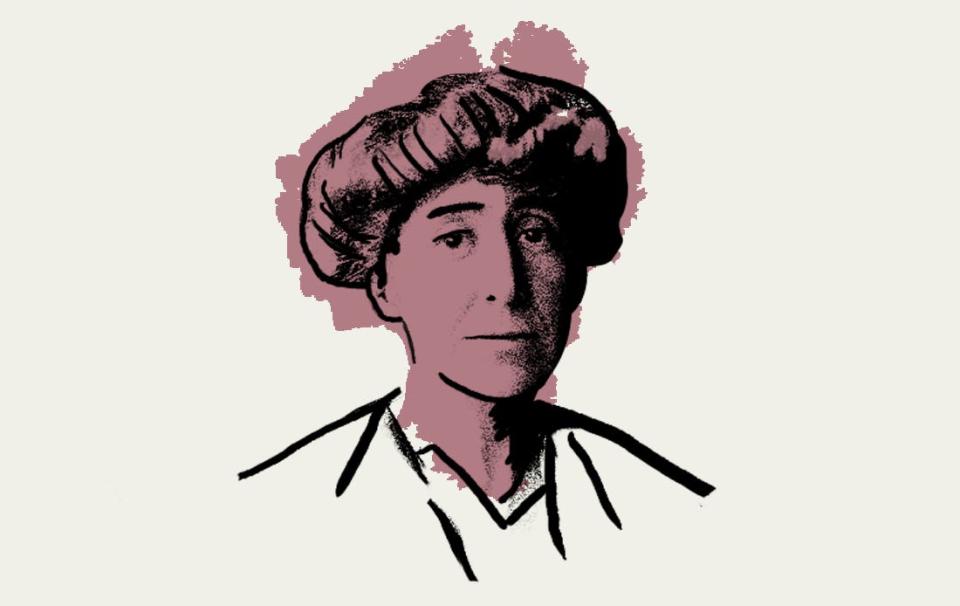
Jeannette Rankin, born on a ranch near Missoula, was a suffragist who in 1916 became the first woman elected to Congress. She studied at the University of Montana, graduating in 1902 with a bachelor’s degree in biology. She was a social worker before joining the women's suffrage movement.
Rankin’s advocacy work was instrumental in securing women the right to vote in Montana in 1914 and was significant in initiating legislation that eventually became the 19th Amendment to the U.S. Constitution, granting voting rights to women nationwide. She worked to get suffrage passed in more than 20 states.
She was elected to the U.S. House of Representatives in 1916 and again in 1940. Rankin, a Republican and vocal pacifist, was the only member of Congress to vote against the United States entering both World War I and World War II, saying she could not vote for war.
During the Vietnam War, the Jeannette Rankin Brigade totaled 5,000 protesters in a march on Washington in January 1968. The march ended with a presentation of a peace petition to House Speaker John McCormack of Massachusetts.
Elouise Cobell
Blackfeet reservation treasurer
(1945-2011)
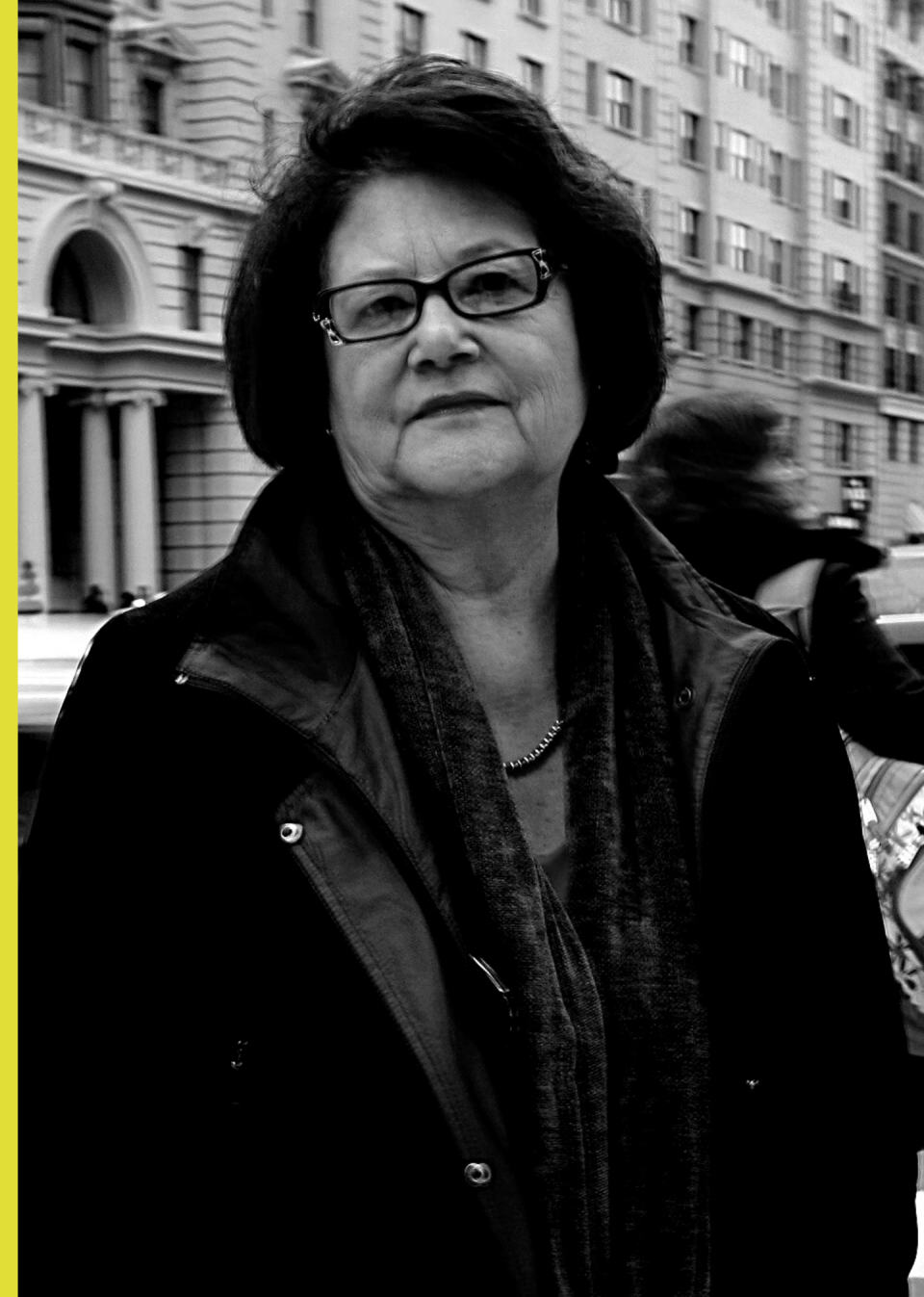
Elouise Cobell, also known as Yellow Bird Woman, was born on the Blackfeet Reservation, where she assisted small business owners and helped open the Blackfeet National Bank in Browning, the first tribally owned bank in the United States.
While serving as the tribe's treasurer for over a decade, Cobell learned the U.S. government had misspent, lost or stole billions of dollars in royalties received for oil and gas leases and other uses of individual Indian lands held in trust by the government. She filed a lawsuit in 1996 to recover royalties linked to mismanaged Indian Trust Funds belonging to more than 300,000 people.
She funded the lawsuit using most of the $300,000 from a MacArthur Foundation genius grant she received in 1997.
The legal battle went on for nearly 15 years, and included 10 appeals and 3,600 court filings. It ended in late 2010, when Congress passed legislation that was signed by President Barack Obama.
Cobell secured a $3.4 billion settlement. She died in 2011 after a battle with cancer, and the government issued its first payments to individual landowners in 2012. In 2016, Obama posthumously awarded Cobell the Presidential Medal of Freedom.
Alma Smith Jacobs
First African American woman to become Montana state librarian
(1916-1996)
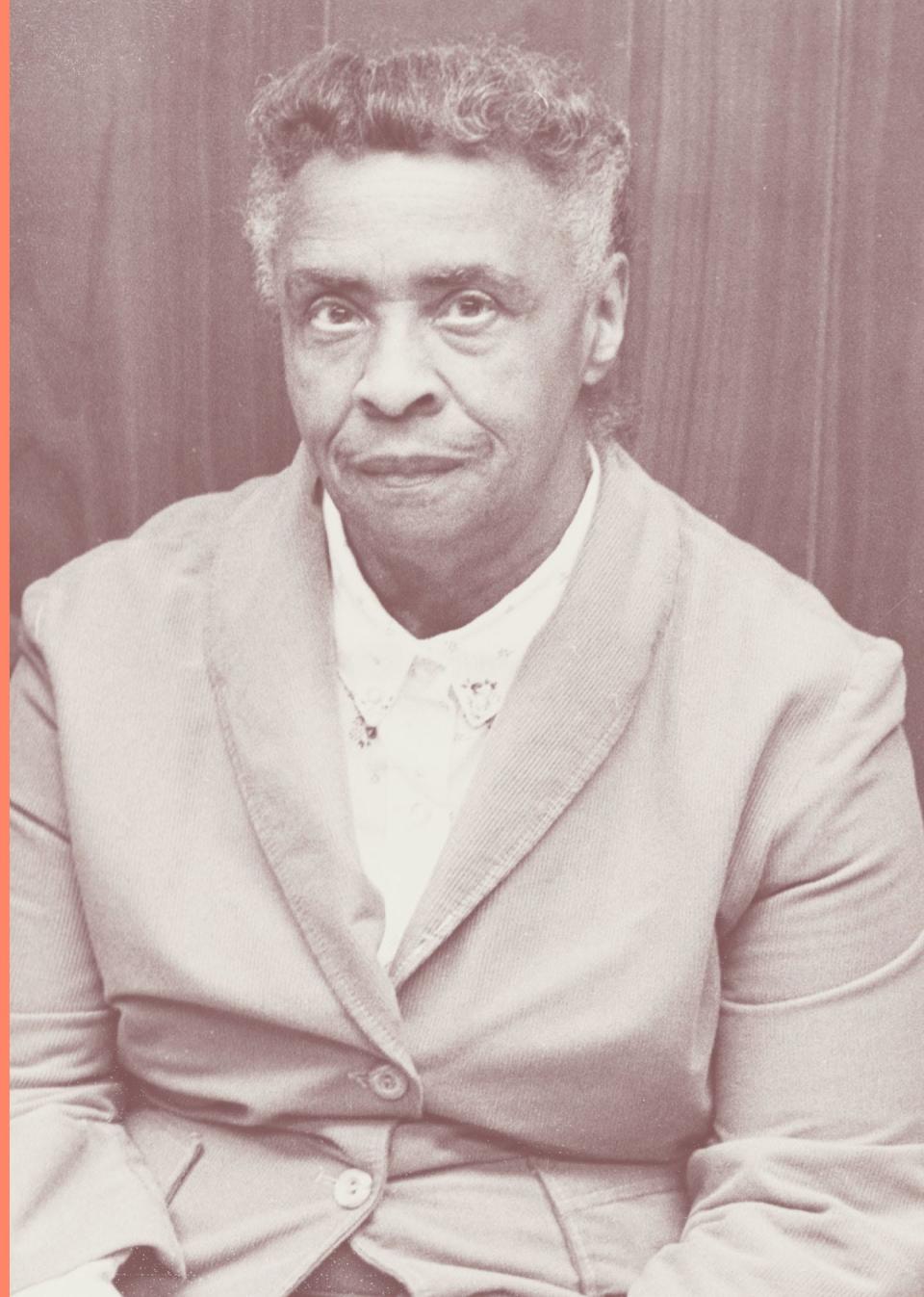
Alma Smith Jacobs worked as the head librarian of the Great Falls Public Library for almost 20 years before becoming the Montana state librarian in 1973, milestones that were firsts for a Black woman.
Jacobs believed libraries were "the poor man's university" and was adamantly opposed to censorship. She led and served on library associations at the state, regional and national level.
During her time as head librarian in Great Falls she led efforts for the construction of the city’s library in 1967, and the expansion of the rural library service program statewide. When she was named Montana State Librarian she helped in development of library federations in the state.
Throughout her life, she was an advocate for African American civil rights and for families and soldiers associated with the city's Army air base. Jacobs sought to improve housing, unions and access in her home city.
She was president of the Montana Federation of Colored Women’s Clubs, was part of the Montana Advisory Committee to the U.S. Civil Rights Commission and regularly criticized segregation at a time that it was uncommon, and unpopular.
Evelyn Cameron
Photographer and diarist of the American West
(1868-1928)
Evelyn Cameron captured the spirit of the American West through her words and pictures.
She and her husband Ewen came to Montana from England to raise polo ponies. Cameron began to work the ranch and started taking photographs.
She started documenting pioneer life near Terry in the 1890s with photographs that featured cowboys, sheepherders, animals, ranch work and other topics.
Cameron also took photos of women on ranches in ways that followed tradition and were also non-traditional.
It was former Time-Life Books editor Donna Lucey who got Cameron posthumous national praise as a diarist of the American West in the 1970s. Lucey found thousands of Cameron's prints and negatives, along with diaries and letters covering 36 years in the basement of Cameron's best friend's home. Lucey’s book, “Photographing Montana 1894-1928: The Life and Work of Evelyn Cameron,” features more than 170 of Cameron's images.
Janine Pease
Native American advocate
(1950- )
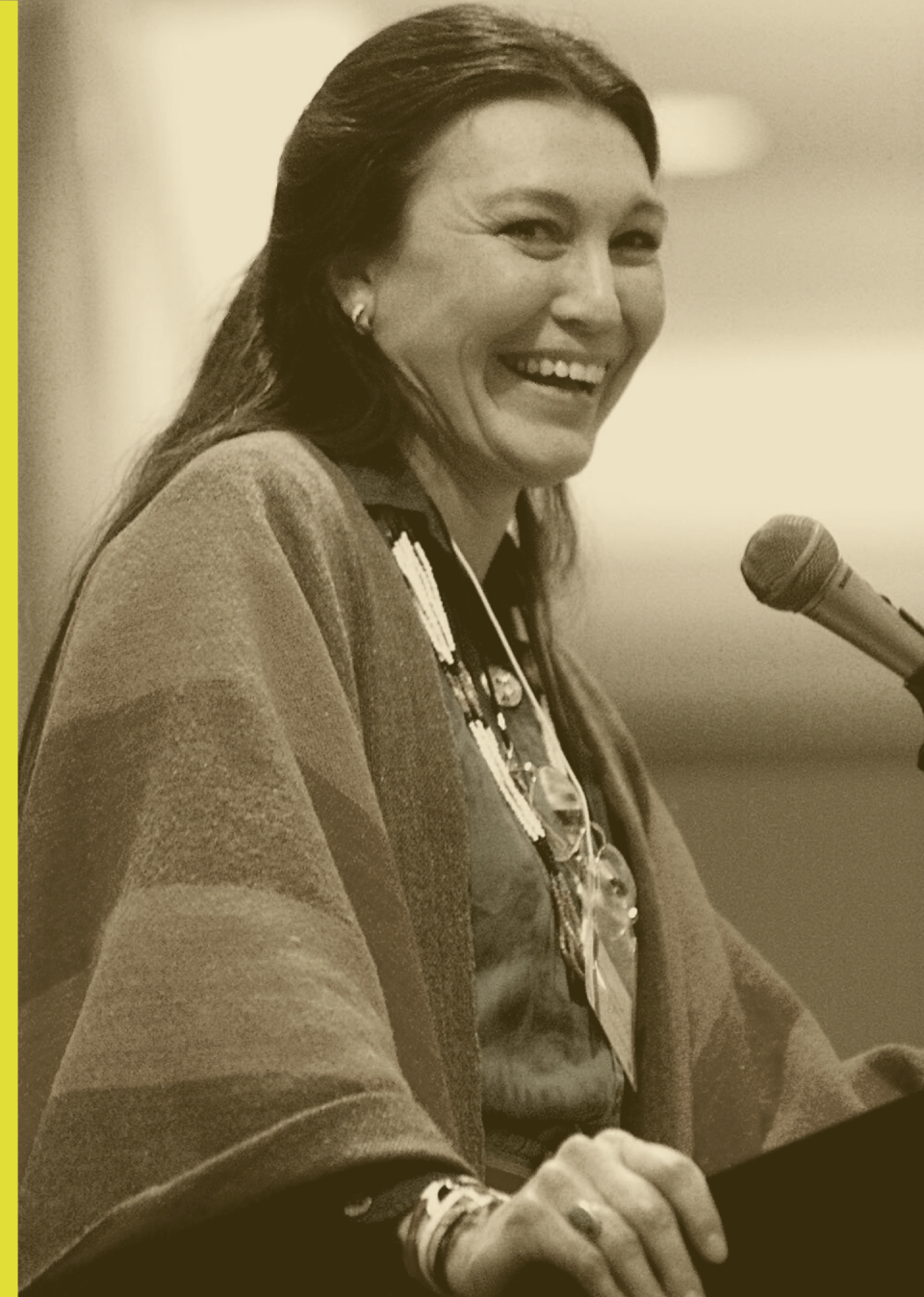
Janine Pease is a Crow educator and advocate for Native American political empowerment and education. She is the founding president of the Little Big Horn Tribal College, which grew from one room and is now an accredited two-year community college with more than 300 students.
In 1986, she was lead plaintiff in a voting rights case that accused the Big Horn County Commission of weakening Indigenous votes.
She became interested in language immersion and led an effort to revitalize the Crow language, while serving as cabinet Head for Education for the Crow Nation.
Pease has served as the past president of the American Indian Higher Education Consortium and director of the American Indian College Fund. She was appointed by President Bill Clinton to the National Advisory Council on Indian Education and the White House Initiative on Tribal Colleges and Universities Advisory Council. She has also served as a trustee of the Smithsonian National Museum of the American Indian.
She has served on the Montana Human Rights Commission, the Montana University System Board of Regents and was presiding officer of the Montana Districting and Apportionment Commission.
Sister Providencia
Native American advocate
(1909-1989)
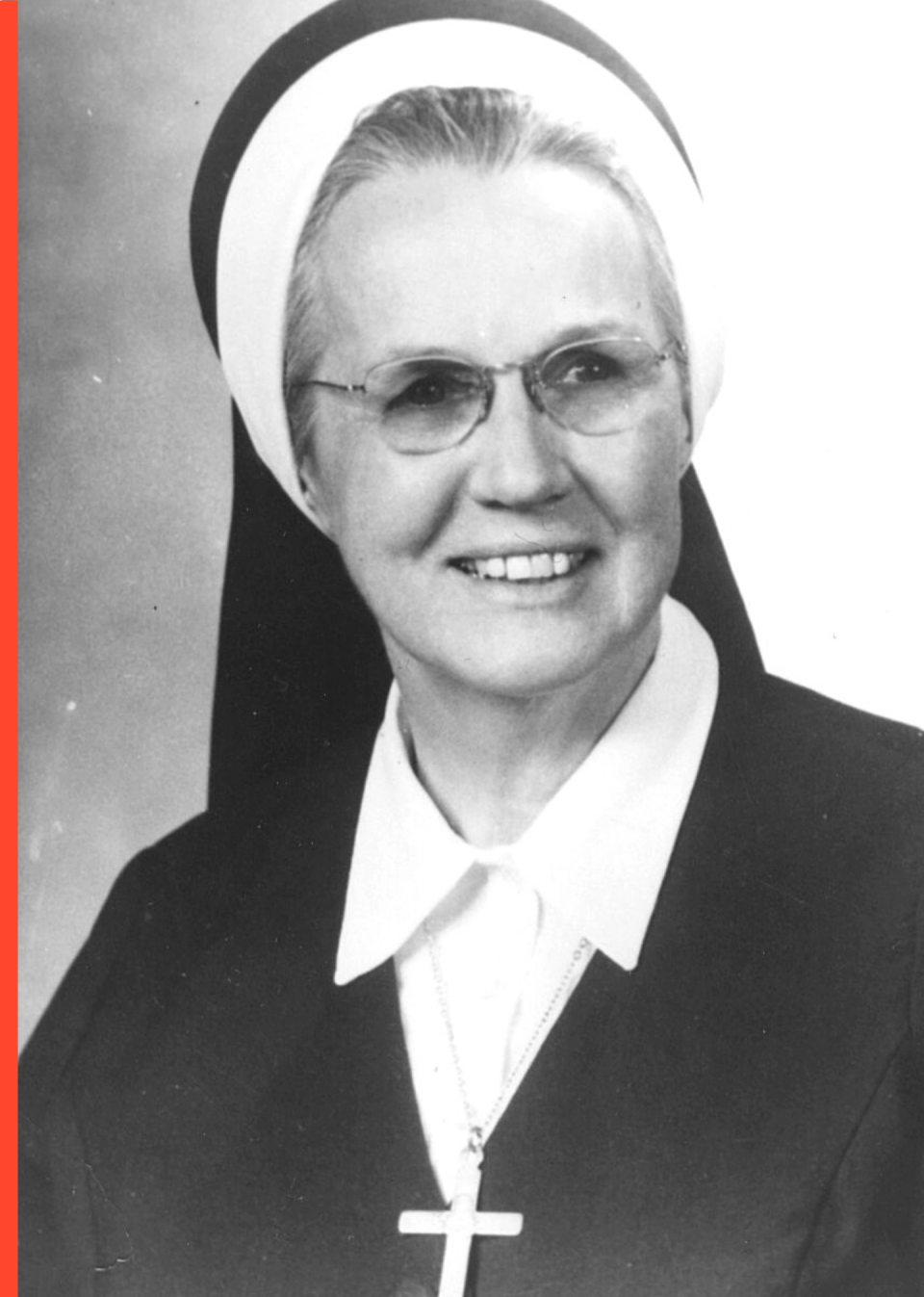
Sister Providencia was born Denise Hortense Tolan. She was teaching at Great Falls College when she dedicated herself to helping Native Americans in 1952.
Providencia found help in the Montana Intertribal Policy Board and Montana’s Advisory Council on Indian Affairs. They pressured the government to uphold its obligations and Montana’s Legislature in 1957 demanded restoration of federal obligations for Native welfare, education, employment and health care.
When President Lyndon Johnson launched the War on Poverty in the 1960s, Sister Providencia worked to ensure the programs addressed Native Americans’ needs.
Susie Walking Bear Yellowtail
One of the first Native American women nurses
(1903-1981)
A member of the Crow tribe, she was one of the first Native American women to become a nurse. She went on to become the first Native American inducted into the American Nurses Association Hall of Fame.
Her first assignment in Montana was at the Indian Health Service's Hospital at the Crow Agency. For two years, she worked on the reservation to modernize health services offered to her tribe, fought forced sterilization of Native women and traveled the country for the Public Health Service to assess care given to Indigenous people.
For three decades, she documented problems in the Indian Health Service. She pushed for effective improvements to the service, such as allowing traditional tribal healers to attend Native patients and creating the Community Health Representatives outreach program on reservations. She also served on tribal, state and federal councils.
She was awarded the President’s Award for Outstanding Nursing by President John F. Kennedy in 1962 and was appointed by President Richard Nixon to serve on the Council on Indian Health, Education and Welfare and the federal Indian Health Advisory Committee. She was honored as the Grandmother of American Indian Nursing in 1978 by the American Indian Nurse Association.
Lucille Otter
Champion for Native American voting rights
(1916-1997)

Born in 1916 on the Flathead Indian Reservation, Lucille Otter was a champion for Native American voting rights.
She was hired in 1934 to work at the Dixon headquarters of the Indian Division of the Civilian Conservation Corps, becoming the first woman to work there in an administrative capacity. She oversaw budgeting ICCC projects, keeping accounts, payroll and purchase orders for the ICCC camps.
After the 19th Amendment was passed, various state and federal laws worked to prohibit Native Americans from voting. Otter worked to register Native voters, starting with women. Her mother, Adeline, became the first Native woman on the reservation to register to vote.
In the late 1930s, Montana prohibited people who did not pay local taxes from becoming local registrars, suppressing Native voter registration in reservation counties. By the time the Voting Rights Act passed in 1965 to remove these barriers, many tribal members had given up on trying to vote.
Otter registered more than 1,000 voters on the reservation. Salish Kootenai College awarded her an honorary degree in 1988. Many Native American politicians attribute their work to Otter.
Fannie Sperry Steele
Part of the first generation of professional Montana cowgirls
(1887-1983)
Fannie Sperry Steele was born in the Prickly Pear Valley near Helena and her mother taught her to ride a horse almost before she could walk.
She put those skills to use and was part of the first generation of professional Montana cowgirls.
Sperry was one of the first women inducted into the Rodeo Hall of Fame of the National Cowboy & Western Heritage Museum in 1975, and the first Montana native in the National Cowgirl Hall of Fame in 1978.
She started participating in women’s bucking horse competitions in 1907 and was named “Lady Bucking Horse Champion of the World." This occurred after a ride on a bronc at the first Calgary Stampede in 1912. She earned the title again in 1913.
Sperry, who rode exhibition broncs until she was in her 50s, rode “slick," a technique which required extra balance and strength. Women typically tied their stirrups together beneath the horse's belly which provided greater stability but could be more dangerous.
Gretchen Garber Billings
Reporter, editor, and advocate for public health reform and Native American rights
(1914-1999)
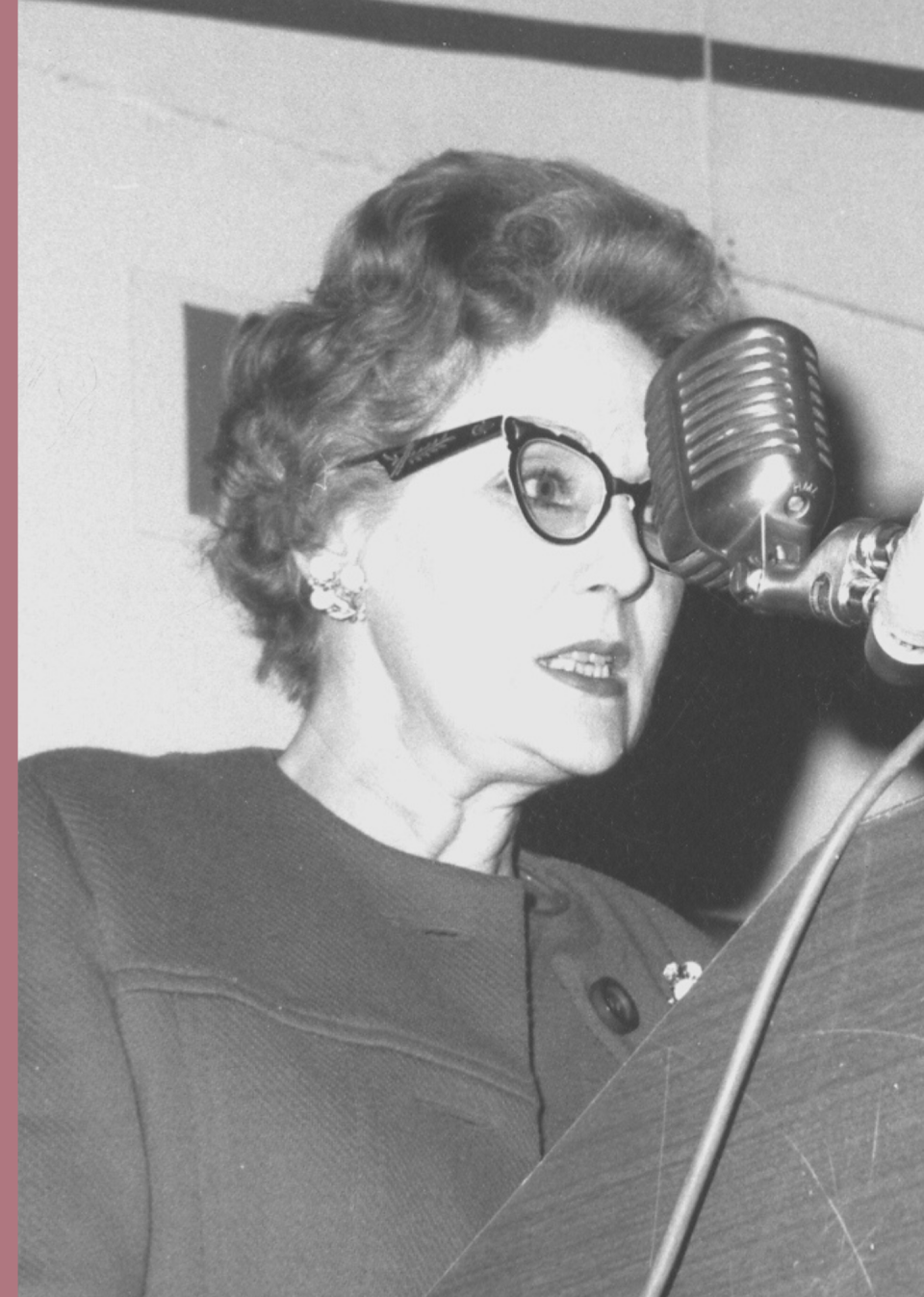
Gretchen Garber Billings moved to Montana after World War II to work as a reporter and editor for the People’s Voice, an independent, left-leaning Helena-based newspaper.
She was born in Whitefish, and raised in the Seattle area.
Billings and her husband, Harry, helped the paper become a venue for progressive causes and held state government accountable.
The paper was created during a time when many dailies were controlled by the Anaconda Copper Mining Co. Billings clashed with Anaconda and the Montana Power Co. over causes such as support for unions, worker's compensation and public ownership of utilities.
She was an advocate for public health reform, Native American rights and other issues. She opposed the Vietnam War. Billings had good relationships with the conservative politicians her paper often criticized, and her writing made her popular with readers.
More coverage
Women of the Century: They didn’t succeed despite adversity, but often because of it
50 states: Learn about notable women from every state
Who is your Woman of the Century?: Let us know
Recognizing women past and present: See all of our coverage
Special thanks to Ellen Crain of the Butte-Silver Bow Public Archives; Elizabeth Hubble at the University of Montana; Beth Judy, author of “Bold Women in Montana History;” Martha Kohl of the Montana Historical Society; and Mary Murphy of Montana State University.
Sources used in the Women of the Century list project include newspaper articles, state archives, historical websites, encyclopedias and other resources.
This article originally appeared on USA TODAY: Women of the Century Montana: Native American rights activists on list

